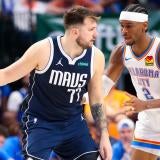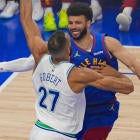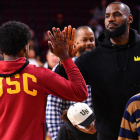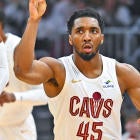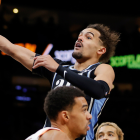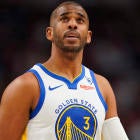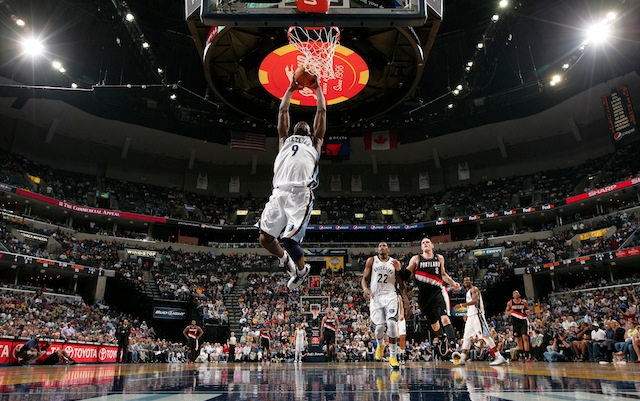 |
| Memphis accomplished something mostly with nothing. (Getty Images) |
Over the next month, CBSSports.com's Eye On Basketball will take a team-by-team look at the 2012 NBA offseason. Next up: the Memphis Grizzlies. You can find our offseason reports here.
I. How they finished 2012: With major disappointment.
The 2011-12 season was seen as one filled with great promise and potential for the Grizzlies. They were everybody's Western dark horse. They were the team built to challenge the Thunder, Lakers or Spurs. They hads size, they had scoring ability and they could match up with essentially anyone.
It was all going according to plan too. They drew the Clippers, a likely overmatched opponent, in the first round of the playoffs. And a win would've given them a rematch with the Spurs, a team they eliminated last season.
Memphis took control of Game 1 holding a 27-point second half lead, well on their way to a 1-0 start.
But then it all went horribly wrong. The Grizzlies collapsed completely, fell in a 0-1 hole and were set to battle uphill for the rest of the series. They had their chance though. They had Game 7 on their home floor, but again, failed to find any fourth quarter offense. Instead of advancing on to take on a team they would've had a good matchup advantage on, they were done.
II. Needs entering the offseason: The Grizzlies were saddled with a difficult challenge. They needed to get better, but they also weren't given much room to manuever. They needed perimeter shooting. They needed another reliable wing scorer to go with Rudy Gay. They needed some interior depth to back up Marc Gasol and Zach Randolph. They needed a backup point guard, in a bad way.
But with so much tied up in Gay, Gasol, Randolph and Mike Conley, Memphis couldn't exactly be major players on the market.
Like any wannabe contending team, the Grizzlies know there's room to improve, room to grow the roster to a place where it's legitimately a title threat. The existing roster in place is already very good -- a great place to be -- but there were remaining needs that could use addressing.
III. The Draft: Sitting at 25 in the draft, the Grizzlies were one of those teams in the unique position of really valuing their pick greatly, but also at the mercy of the 24 spots picking before them.
Without much room to wiggle in free agency, the Grizzlies needed their pick to be a good one. They had a free chance to improve. There weren't a ton of great options remaining, but Memphis settled on 6-foot-5 combo guard Tony Wroten from Washington.
In terms of filling need and landing talent and potential value, Memphis might've hit a home run. Wroten has a heap of ability, can be an elite perimeter defender and with his size and style, likely will be able to playing alongside Conley as well as serving as his backup.
IV. Free Agency: When you don't have much room in the budget to improve, it can make it difficult to accomplish anything. But the Grizzlies took advantage of the opportunities they had and improved regardless.
They signed Jerryd Bayless to a cheap multi-year deal, a move that could pay huge dividends in the near future. He fills a need, fits well behind Conley as a natural backup point guard, and shouldn't stunt Wroten's development.
Memphis made the decision to let O.J. Mayo walk as a restricted free agent, replacing him in a trade that brought in Wayne Ellington. Mayo has some solid scoring ability, but in terms of what Memphis needed out of that position, Ellington should be an adequate replacement.
Outside of that, the Grizzlies just re-signed Hamed Haddadi, Darrell Arthur and Marreese Speights. Nothing earth-shattering, but certainly moves that help solidify some interior depth.
V. Overall grade and accomplishments: B
When evaluating an offseason, you've got to account for the previous work. Because while one can look like it was amazing with a flurry of moves and signings, an offseason's success can often be predetermined.
The Grizzlies mostly had their pieces in place and were saddled with the responsibility of improving on the edges. Strengthen the bench, add some depth in necessary places and find a specialist or two that can fill a need.
For the most part, those goals were checked off. But the mission of every team, especially contending ones, is to put together a roster that has a legitimate shot at winning it all. Did the Grizzlies do that with their offseason? Hard to know, but it doesn't look like it. They added good pieces, made do with the limited resources they had, but is it enough?









